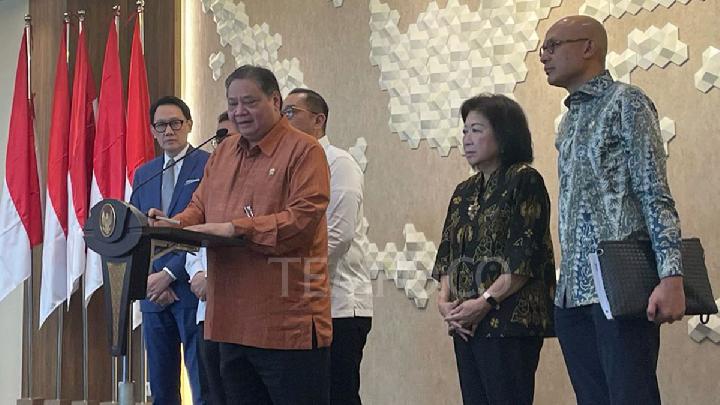Trump's Tariffs Pose Threat to Indonesia's Shoe Industry
Reporter
April 10, 2025 | 02:22 pm

TEMPO.CO, Jakarta - The newly implemented United States import tariff policy, known as Trump's tariff, which took effect on Wednesday, April 9, 2025, local time, is considered to directly pressure several leading export sectors of Indonesia, one of which is the footwear industry.
Although the government assessed that the macro impact is insignificant, this sector still faces great risks, especially due to its labor-intensive and export-oriented nature.
The Significant Contribution of Footwear in Exports
Based on a report from Antara, data from the Jakarta Central Statistics Agency (BPS) noted that footwear accounted for 21.62 percent of Jakarta's total exports in October 2024, making it a leading export commodity. The value of footwear exports then reached US$312.01 million, a 26.19 percent increase compared to the previous month. The dominant products were athletic footwear marketed in the United States, Belgium, and the Netherlands.
As cited from Surabaya Industrial Vocational Training Center, in 2018, Indonesia's footwear exports amounted to US$5.11 billion, a 4.13 percent increase from last year. Throughout the same year, the national footwear industry produced 1.41 billion pairs of shoes, equivalent to 4.6 percent of the global production.
At that time, the Minister of Industry, Airlangga Hartarto, was optimistic that the export value could reach US$6.5 billion in 2019 and increase to US$10 billion in the following four years. This was driven by trade agreements such as CEPA with Australia and EFTA, which opened up broader markets. Furthermore, Indonesia was also noted as the world's fourth-largest shoe producer after China, India, and Vietnam. Regarding consumption, Indonesia also ranked fourth with 886 million pairs of footwear.
This industry was supported by more than 18,000 businesses, mostly small-scale, and employed nearly 800,000 people. According to Gati Wibawaningsih, then Director General of IKMA at the Ministry of Industry, footwear was a strategic labor-intensive sector. Its development was crucial with demographic bonus potential until 2030.
32 Percent Tariff and Efficiency Threat
With a 32 percent import tariff imposed by the Trump administration, the prices of Indonesian shoes in the U.S. market are set to soar, triggering a potential decrease in demand. This could lead companies to reduce production capacity and even carry out efficiency measures, including layoffs.
Editor's Choice: Trump Strikes Back: China Faces New 125% Import Tariffs
Click here to get the latest news updates from Tempo on Google News






















